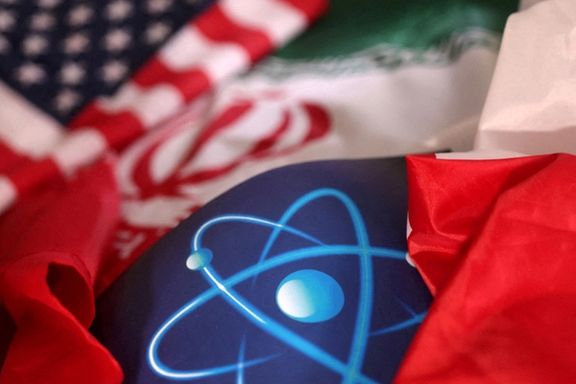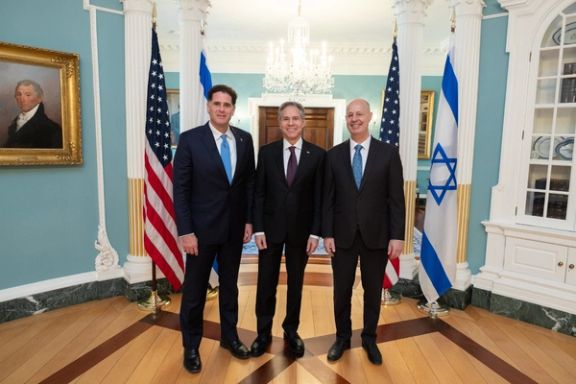US Contradicts Itself As Denials Of Nuclear Talks Continue

The US continues to deny being in talks with Iran for an interim nuclear deal, while in parallel, accusing Israel of leaking details of the very talks they refute.

The US continues to deny being in talks with Iran for an interim nuclear deal, while in parallel, accusing Israel of leaking details of the very talks they refute.
Axios reported Wednesday that US national security adviser Jake Sullivan in a tough call with his Israeli counterpart last week expressed concern that Israel is leaking information to the press about indirect talks between the US and Iran.
According to Axios, Israeli national security adviser Tzachi Hanegbi and Ron Dermer, Israel's minister for strategic affairs, met Biden’s national security advisor, Jake Sullivan at the White House in early June and were briefed in detail about the indirect talks.
Since then, Israel has said in no uncertain terms that it objects to any kind of interim nuclear deal with Iran, however small.
Nevertheless, in public, the talks continue to be denied. This week, US Secretary of State Antony Blinken once again slammed the rumors, which have now come from multiple sources, of any talks being afoot, claiming no new nuclear deal with Iran was on the table.

"There is no agreement in the offing, even as we continue to be willing to explore diplomatic paths," Blinken said at the Council on Foreign Relations in New York. This was reiterated by the US State Department at its weekly press briefing on Wednesday with principal deputy spokesperson Vedant Patel who told Iran International’s Samira Gharaei that “rumors of an Iran deal and interim or otherwise are false and they are misleading”.
In line with the Biden policy jargon, he told Gharaei: “As you've heard me say, we prefer diplomacy, but we are preparing for all possible options and contingencies, and we are in full coordination with our allies and partners on this.”
Highlighting the ongoing concerns raised by Israel, Patel repeated the importance of supporting the Jewish state in its right to defend itself in the face of continuous threats from Iran.
“Our commitment to Israel and our commitment to Israel's ability to defend itself are ironclad,” he said. Confirming at least that aspect of US diplomatic discussions with Iran, he added: “This is what we have been clear about in our communications to Iran. Should it take any steps to further escalate tensions, the Biden administration has been clear that we're prepared to take action to ensure that Iran never acquires a nuclear weapon.”
Quashing rumors that Biden’s softly-softly approach to Iran is moving away from the tough sanctions imposed under the nuclear deal, or JCPOA, which is set to expire in October, he said the administration’s policy to Iran has not changed.
“We continue to remain deeply focused on Iran's destabilising behaviour through diplomatic pressure through close coordination with our allies and partners and we are committed to ensuring that Iran never acquires a nuclear weapon. So of course, we are watching Iran's actions and activities very closely.”
The EU has just announced that even when October’s deadline approaches, it will continue to apply sanctions to the regime, showing that regardless of US policy, its position on Iran will remain unchanged. It is yet to be seen if the US will impose such a clear policy, Patel only saying they continue to coordinate with allies and partners, including the EU.